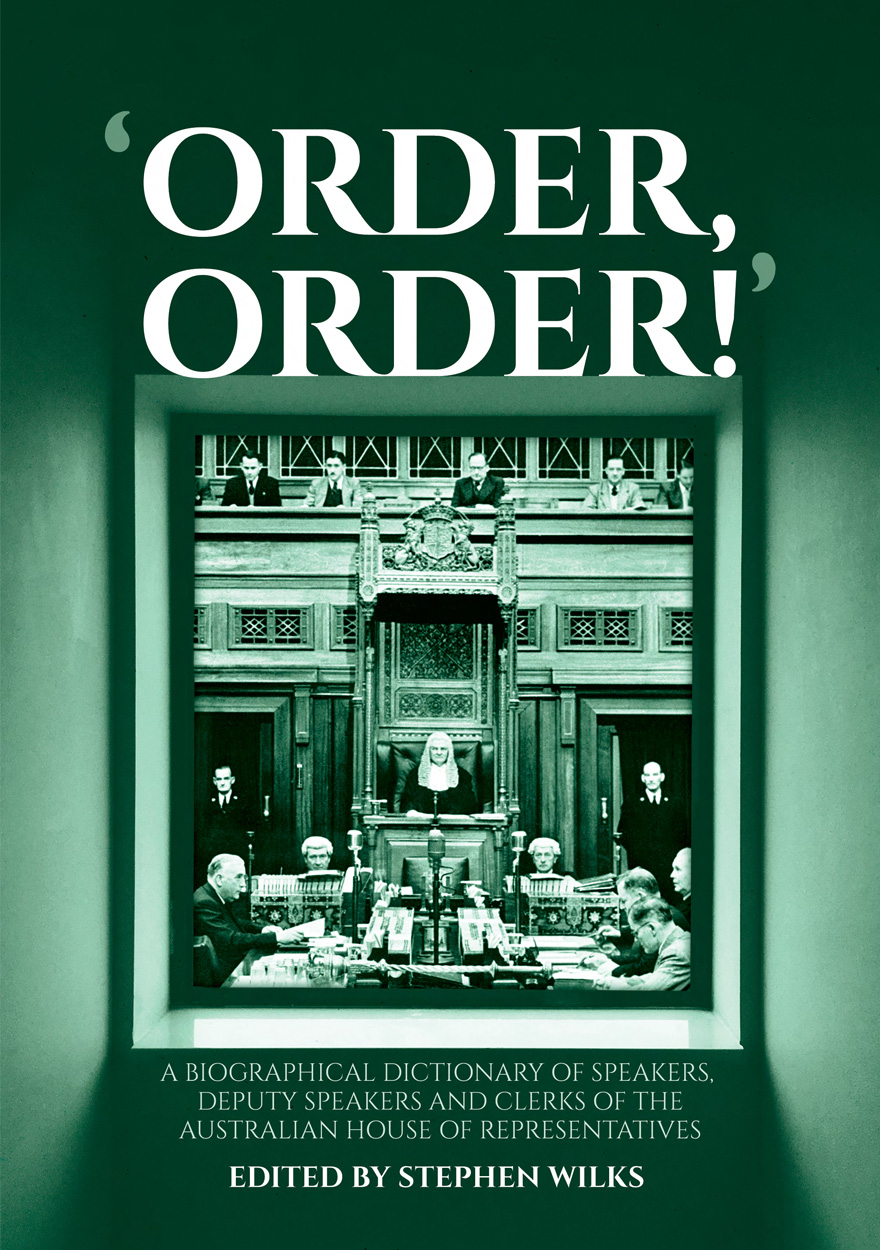A Biographical Dictionary of Speakers, Deputy Speakers and Clerks of the Australian House of Representatives
Publication date: May 2023
‘Order, Order!’: A Biographical Dictionary of Speakers, Deputy Speakers and Clerks of the Australian House of Representatives shines a first-ever historical light on the remarkable men and women who have served in these national offices since Federation.
The Speakers include Frederick Holder, whose campaign to embed a Westminster-style Speakership died with him when he collapsed dramatically in the parliament; the much-loved Joan Child, Australia’s first female Speaker, whose struggles as a widow with five children fostered her commitment to social justice and made her, in the words of another Speaker, Anna Burke, ‘pretty fierce’; and Ian Sinclair, a warhorse of a parliamentarian who seemed to prove the poacher-turned-gamekeeper principle. The Deputy Speakers, a particularly eclectic assortment, include the strange and bleakly serious James Fowler, who once hopefully mailed a film synopsis to the American director Cecil B. DeMille and who ended his days warning of the perils of democracy. Amongst the Clerks are Frank Green, who, at the height of the Cold War, indiscreetly befriended members of the Communist Party, and the popular Jack Pettifer—a true child of parliament—who grew up in an apartment in the building.
This book includes analysis of what sorts of individuals typically filled these vital parliamentary positions, and the appearance of an Australian model of the Speakership based on pragmatic compromise. All three offices are typically more than just creatures of political parties—something that Australians should be prepared to defend against the remorseless encroachment of political partisanship.
Format: Hardback





